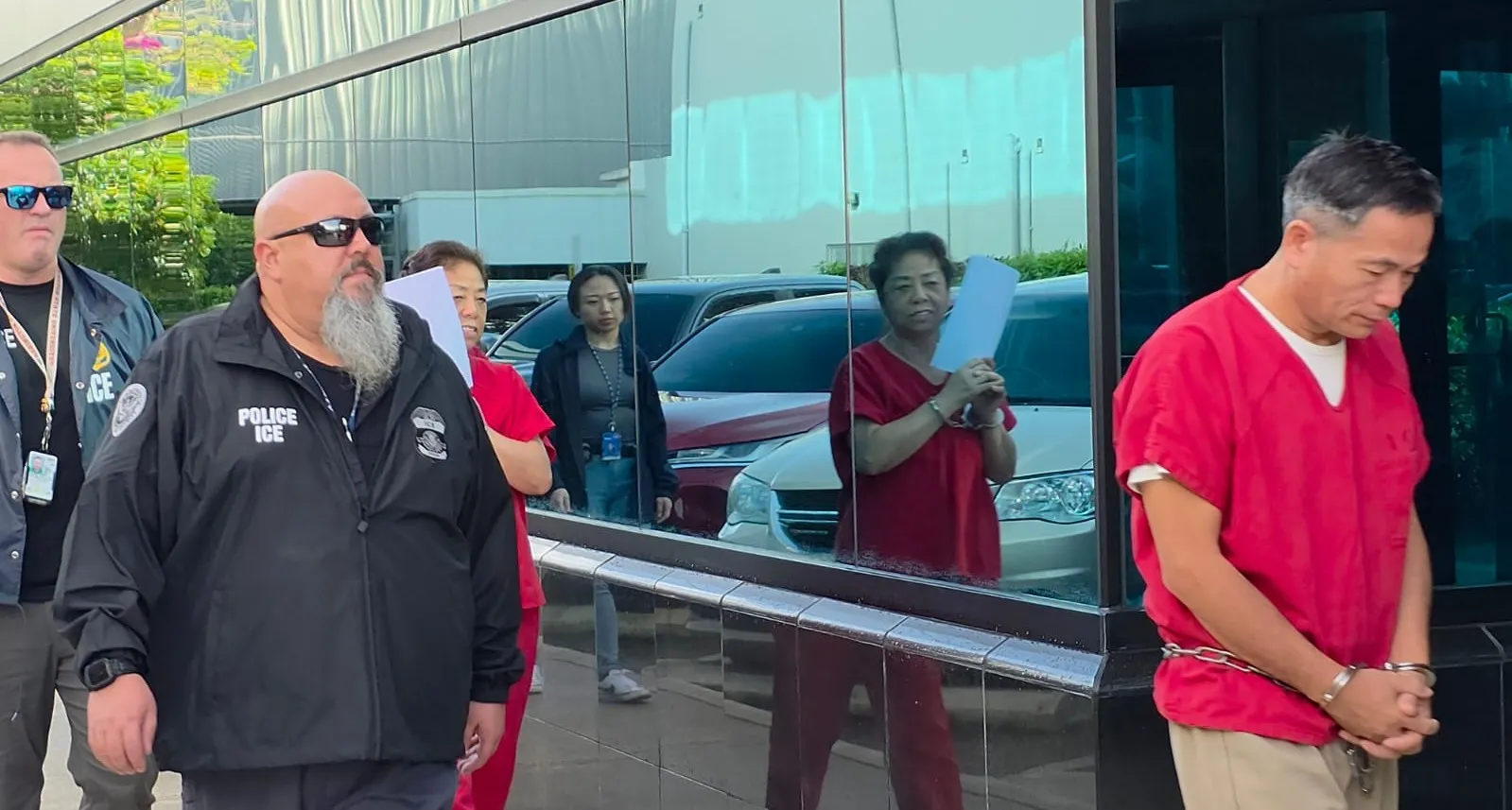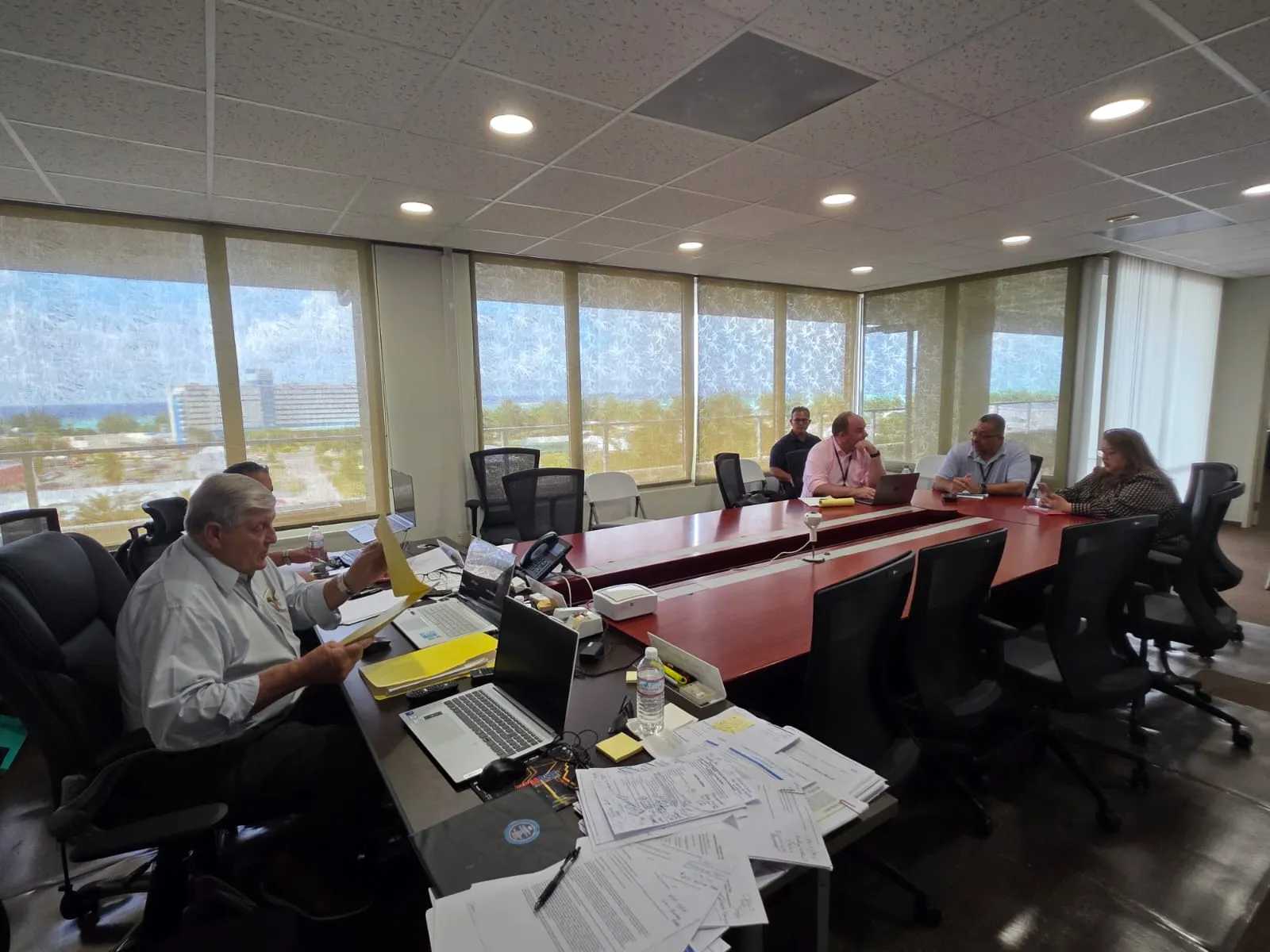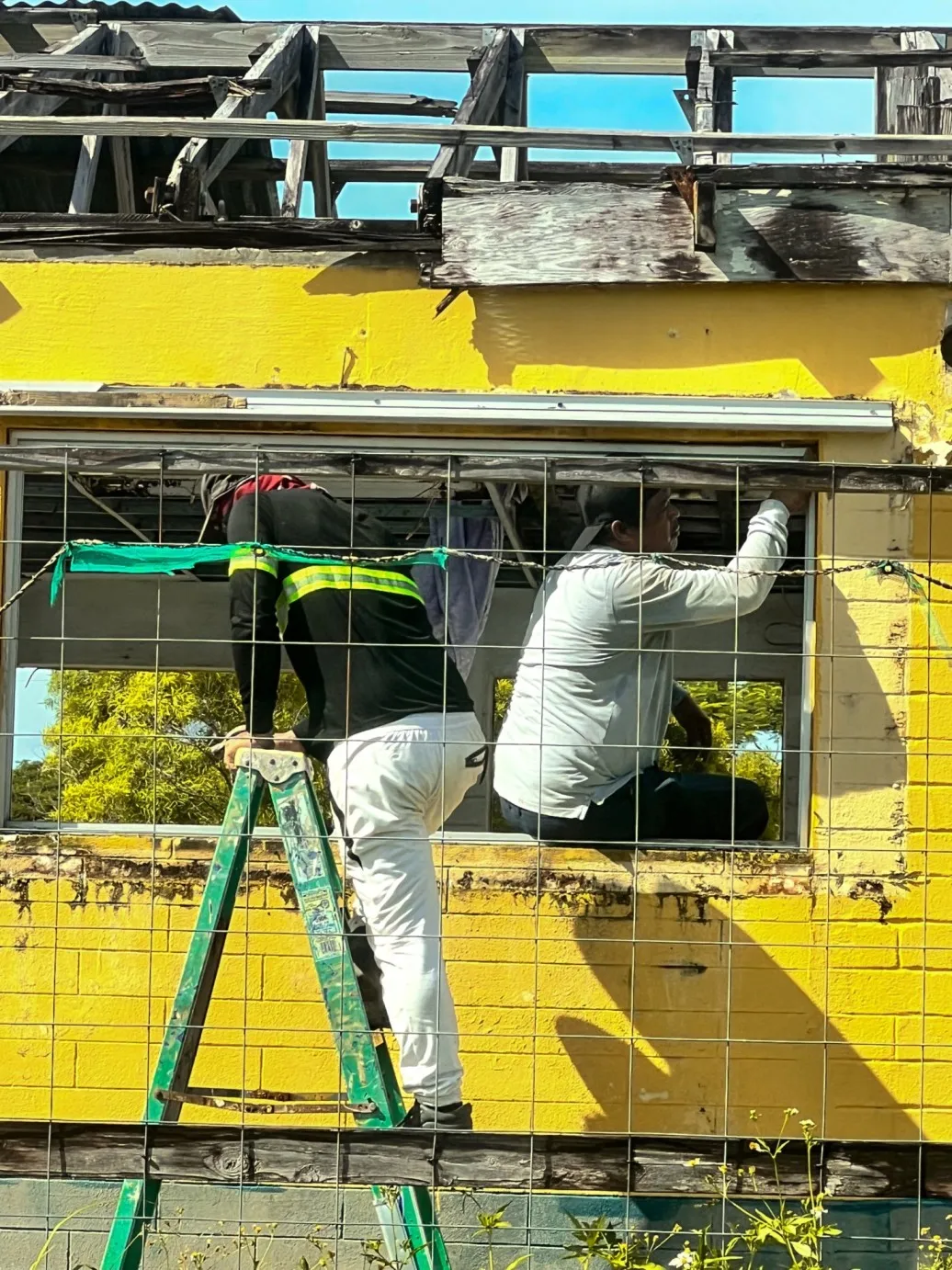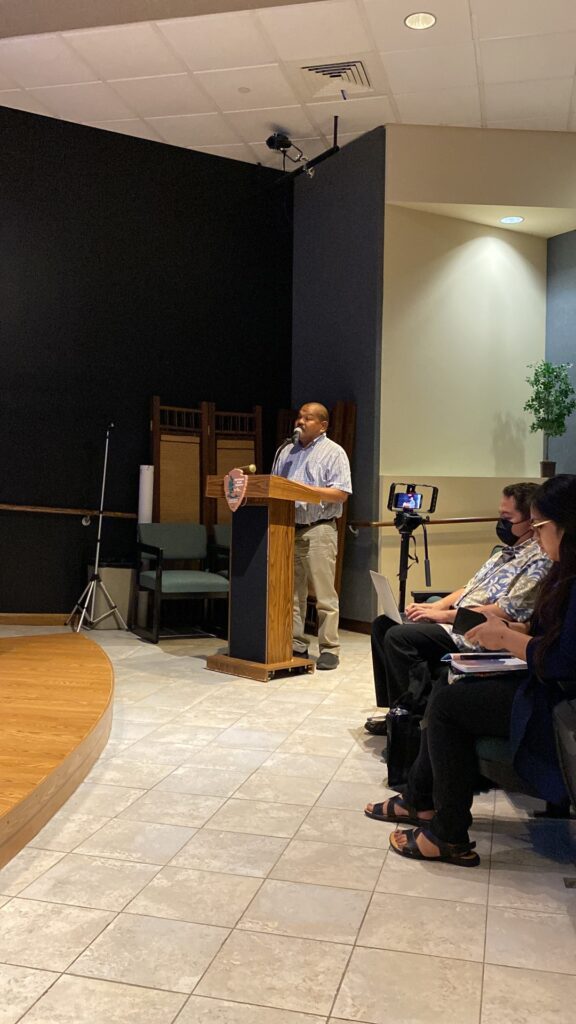THE local opposition to a proposed expansion of a marine national monument in the Pacific Remote Islands was clear Friday, as most public commentators expressed their frustrations and aired their concerns to representatives of the National Oceanic and Atmospheric Administration.
NOAA was on island to collect public comments regarding a proposal to expand the boundaries of marine protections at Howland and Baker Islands, and Kingman Reef and Palmyra Atoll, as well as encompass the areas under one marine national monument.
Most speakers against the expansion of the national marine monument shared one or more of the following basic arguments: the NOAA process to establish the sanctuary was too unilateral, in that it came from the federal government with not enough input from the Pacific; Pacific peoples were already conserving marine resources prior to NOAA’s establishment; and American Samoa’s fish canning industry will be damaged if the PRI national monument is expanded.
John Gourley, a resident of Saipan, said he was concerned about the power imbalance between local and federal governments, saying the PRI marine monument expansion would “diminish our management authority over marine natural resources in the Western Pacific.”
He doesn’t believe that the proposed marine monument expansion is totally for conservation.
“Those of us who live in affected island communities can’t help but think that the federal government’s goal is to completely take away our commercial fishing and seabed mining rights from the Pacific Islanders,” he said.
He added that because the CNMI cannot vote for the U.S. president, has a non-voting congressional delegate and no senator, it makes it easy for D.C. politicians to create or expand a marine monument with little negative political repercussions.
Rep. Vicente Aldan said the Chamorros and Refaluwasch and other Pacific Islanders know how to conserve their natural resources.
“We protect our environment ourselves. We were taught by our ancestors and grandparents to not take more than what you need,” Aldan said. “We don’t need someone to come here from the other side of the world to tell us how to run our place. We don’t have tons of ships running around, taking everything.”
Ross Manglona, resident executive of the Indigenous Affairs Office, echoed Aldan’s sentiments.
“Our people have relied on these waters for thousands of years and we’ve been able to conserve our fisheries for that many years,” Manglona said. “[NOAA] needs to be looking at conservation areas in the Chesapeake Bay, but why is the guy from the Chesapeake Bay telling me how to run my fisheries?”
He said the people of American Samoa will be financially affected by the proposed monument expansion.
“Ten thousand Pacific Islanders are going to suffer as a result of taking away their fisheries,” Manglona said of the impact the monument would have over the American Samoan employees of a tuna canning factory.
Manglona said if NOAA and the federal government can take away the fishing rights of American Samoa, they can also take away fishing rights of the CNMI.
There was also testimony in favor of the marine monument expansion.
David Benavente, a marine scientist from Saipan, said science shows the benefit of marine monuments.
“I’m a scientist, the science is there,” Benavente said. “If you hold an area and cover it, those fish will eventually come out and we’ll be able to use those resources.”
He said aside from conserving resources, science can also be a way to open opportunities for local children. He spoke about how his research opportunities allowed him to see places in the CNMI he’d never have been able to access without a job in science.
“As a resident of the CNMI, I never had the chance to go to the Northern Islands. The only way I was able to go there was through science and through research. There are a lot of people like me who aren’t related to people with big boats. So, for me, the ability that got me there was through science,” Benavente said.
According to Variety files, community members at a March meeting of the Western Pacific Regional Fishery Management Council meeting were not in favor of the proposed marine monument expansion.
Likewise, CNMI Gov. Arnold Palacios, Guam Gov. Lou Leon Guerrero and American Samoa Gov. Lemanu Peleti Mauga have expressed concern over the proposed monument expansion.
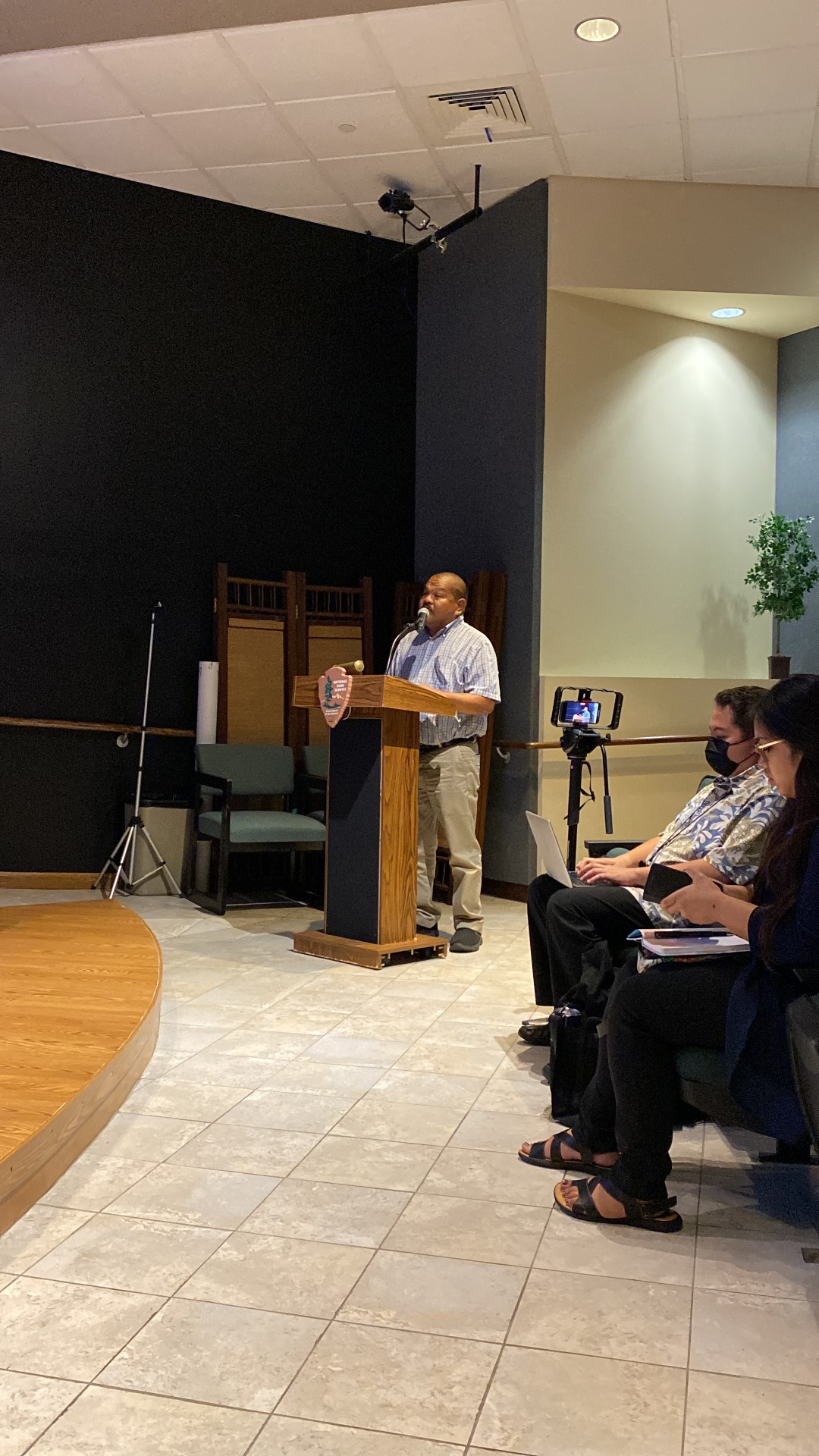
Ross Manglona is opposed to the marine monument’s expansion.
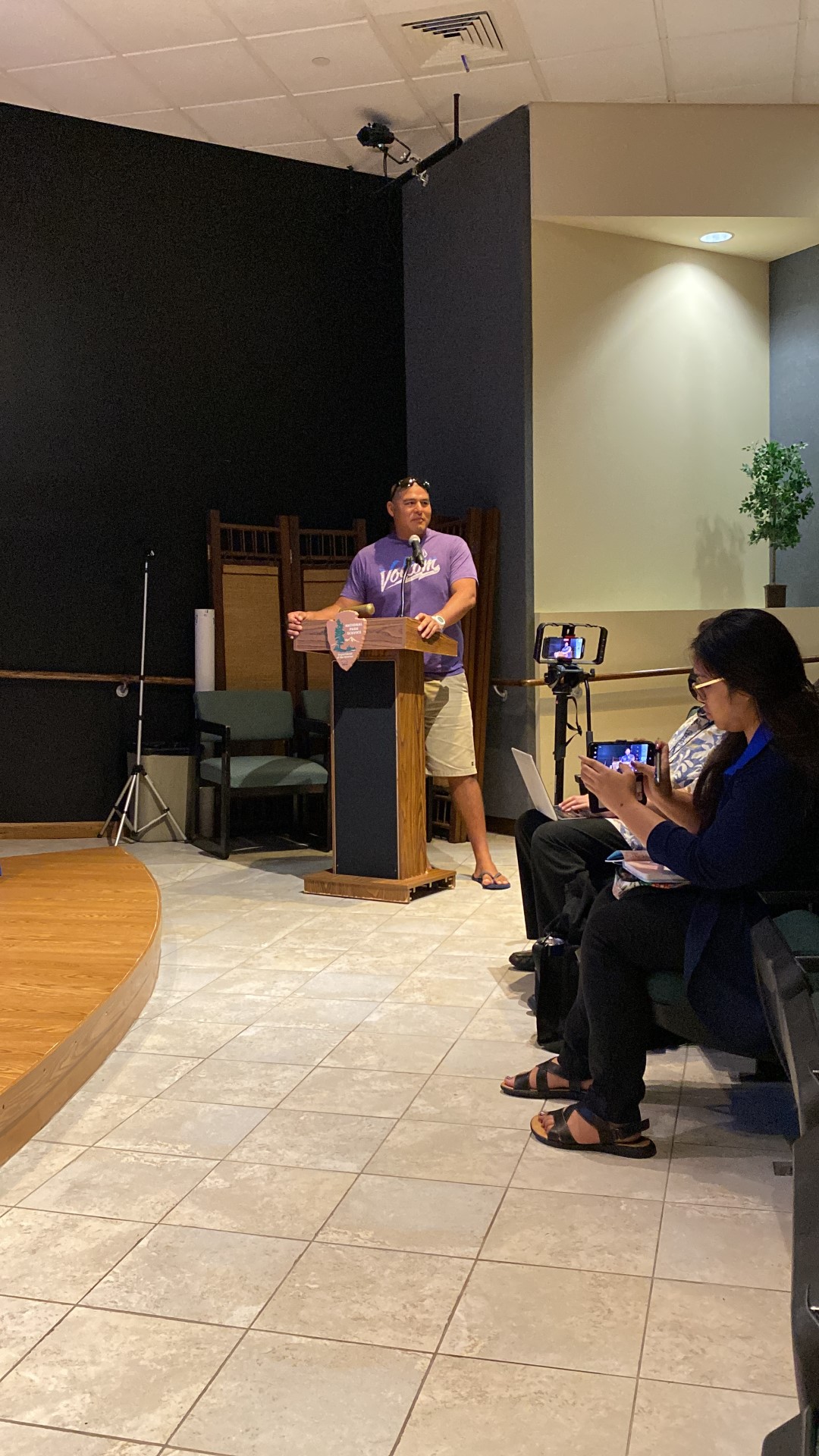
David Benavente supports the marine monument.
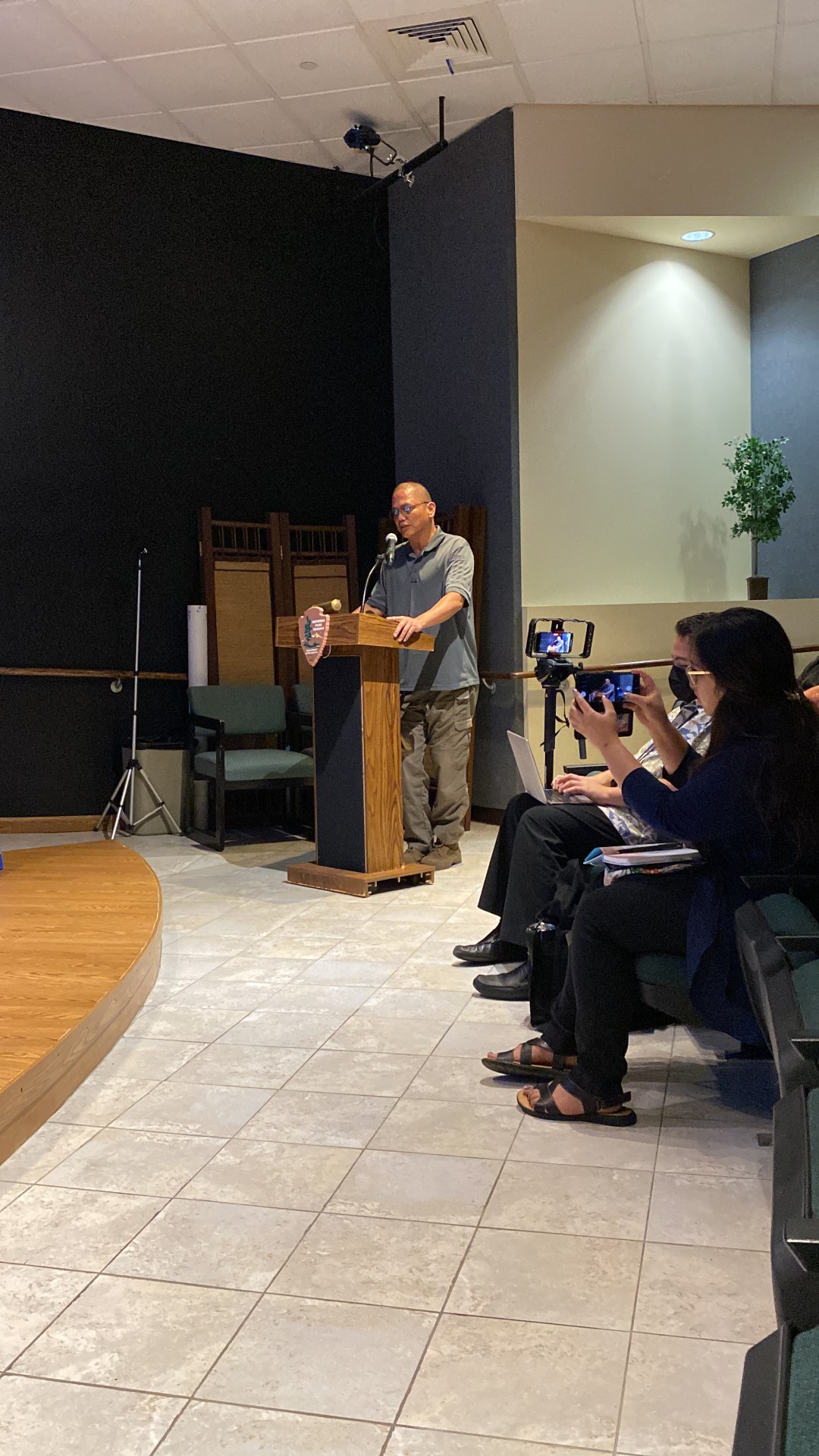
Rep. Vicente Seman Aldan said the local people can protect their environment themselves.



